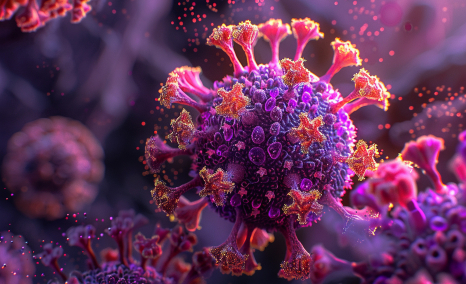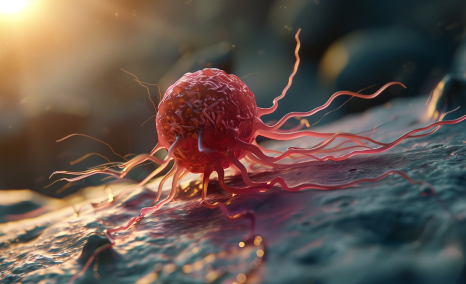CTX130 – CAR T Cell Therapy Offers New Hope for Advanced Clear Cell Renal Cell Carcinoma: AACR 2024
Apr 09, 2024
Renal cell carcinoma (RCC) is the most common type of kidney cancer, characterized by various subtypes like clear cell, papillary, chromophore, and collecting duct carcinomas. Clear cell carcinoma, constituting 80% of all RCC cases commands the majority of treatment focus due to its predominance.
Currently, the primary treatment revolves around checkpoint inhibitors (CPIs) and tyrosine kinase inhibitors (TKIs). However, prognosis takes a downturn when patients progress on these drug classes, highlighting the pressing need for innovative solutions.
At AACR 2024, findings from a Phase 1 (COBALT-RCC) trial investigating allogeneic CAR T cell treatment (CTX130) in patients with advanced clear cell renal cell carcinoma are encouraging.CTX130 uses T cells from healthy donors edited to target CD70 and to disrupt the TRAC and β2M genes, which should reduce graft vs. host disease and donor rejection.
Downloads
Click Here To Get the Article in PDF
Recent Articles
- Personalized vaccine TG4050 induces polyepitopic immune responses against private neoantigens in ...
- KRYSTAL-1: A pooled phase 1/2 efficacy and safety of adagrasib (MRTX849) in combination with cetu...
- Inoculating Hope: The Landscape of Cancer Vaccination
- OBX-115 – TIL Cell Therapy Advancements for ICI-Resistant Advanced Melanoma: AACR 2024
- AstraZenca’s Saruparib Shows Promise as First-in-Class PARP1-Selective Inhibitor in HRR-Deficient...
Long-term follow-up and translational data from the COBALT-RCC study underscore the promising antitumor activity and remarkable safety profile of CTX130 in advanced ccRCC patients. Impressively, 81% of patients experienced clinical benefit CR/partial response/SD), with 75% exhibiting stable disease and one individual achieving a durable complete response lasting over three years—a landmark achievement in allogeneic, off-the-shelf CAR T cell therapy for refractory solid tumors.
Building upon these findings, CRISPR Therapeutics has developed CTX131, an improved version of CTX130. Currently, patients are being enrolled in a Phase I/II clinical trial (NCT05795595) to evaluate the potential of this novel therapy in adult patients with relapsed/refractory solid tumors.
For more information, refer DelveInsight’s report:
Advanced Renal Cell Carcinoma (RCC) – Market Insight, Epidemiology And Market Forecast – 2032
FAQs
Renal cell carcinoma (RCC) is the most common type of kidney cancer, characterized by various subtypes like clear cell, papillary, chromophore, and collecting duct carcinomas. Clear cell carcinoma, constituting 80% of all RCC cases, commands the majority of treatment focus due to its predominance.
At AACR 2024, findings from a Phase 1 (COBALT-RCC) trial investigating allogeneic CAR T cell treatment (CTX130) in patients with advanced clear cell renal cell carcinoma are encouraging. CTX130 uses T cells from healthy donors edited to target CD70 and to disrupt the TRAC and β2M genes, which should reduce graft vs. host disease and donor rejection.
Downloads
Article in PDF
Recent Articles
- Phase 1 study of MDM2 antagonist ASTX295 in patients with solid tumors with wild-type TP53
- American Association for Cancer Research (AACR) 2023 Preview – Top Data Readouts
- Inoculating Hope: The Landscape of Cancer Vaccination
- DOC1021 – Unveiling Hope: Diakonos Oncology’s Breakthrough in Glioblastoma Treatment: AACR ...
- KRYSTAL-1: A pooled phase 1/2 efficacy and safety of adagrasib (MRTX849) in combination with cetu...




